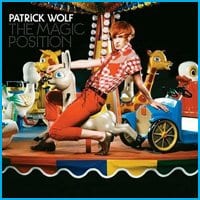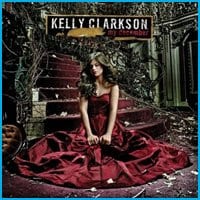Really, what is an artist? A true artist does what he or she believes, corporate head honchos be damned. They fly with their hearts and their guts. It’s not all about the money. It’s about the art. It’s a cliché but there is truth in wanting to grow and take risks.
But when we say “true artist” in the music industry, we think of singer/songwriters mostly, people like Bob Dylan, Joni Mitchell or Rufus Wainwright. These are people — whether you like them or not — who have done it their way and managed to make great recordings (and bad), gain respect and make a good living, too.
There are others who don’t write or produce their recordings, they just sing really well. Think of Ella Fitzgerald, Frank Sinatra or (God help me) Celine Dion. The audience is in awe of their pipes. The range of emotions they can convey. The drama! Gifted songwriters and producers may help them out but the songs become theirs. A record-label-manipulated airhead like Jessica Simpson they definitely aren’t (though Celine gets pretty close sometimes).
Patrick Wolf and Kelly Clarkson have each recently released the third albums in their young careers (Wolf is 23 years old and Clarkson is 25). Both are escaping from the comfortable formulas of their past efforts. They’re in control and no one can stop them.
Patrick Wolf is an English wunderkind who writes and produces his own songs. This six-foot four-inches Crayola-redheaded bisexual lad can also proficiently play around a dozen or so instruments including viola, ukulele, piano and harp. He studied at Trinity College music conservatoire in London’s Greenwich and has played viola on discs by Chicks On Speed and The Hidden Cameras.
Wolf’s last two albums (2003’s Lycanthropy and 2005’s Wind In The Wires) were the sombre and serious efforts of a true artist. The mood was dark, shy and insular. Beautiful? Yes, but slightly precious. His new album, The Magic Position, is a dazzling pop feast. Wolf has let himself go and it’s a remarkable achievement.
Seemingly without trying, Wolf has made one joyous piece of heartfelt commercial art. Every song is a spitfire. There’s a lot to take in but it’s never ever jarring. It’s mesmerizing.
The intro track, “Overture,” starts with primal drumbeats as Wolf’s violin skirts about and makes way for his boyish hiccup vocals. The song reminds me of Tears For Fears’ “Mad World” (but on a conveyer belt to hell). There are mechanical grindings and clip-clops throughout.
“It’s wonderful what a smile can hide/ If the teeth shine right/ And it’s nice and wide,” Wolf sings. “So magical/ All you can keep inside/ And if you bury it deep/ No one can find a thing/ No.”
“The Bluebell” and “Bluebells” are sister songs full of aching loneliness caused by a love that has died. But “Bluebells” has a heroic charge after the light piano intro that is “The Bluebell.” Like a mighty march, “Bluebells” is an escape from the melancholy and — at least instrumentally — a spirited song on a quest for a bright new beginning.
“You were my husband/ My wife/ My heroine/ Now this is our final December.”
Wolf does do a few stunning ballads as well. Just listen to “Magpie” with its snowy delicateness and guest Marianne Faithfull’s smoky all-knowing spoken word and try not to melt in its otherworldly comforts. Wolf has made an album that gives sadness a place to breathe, recount its reason and metamorphose into contentment.
In the last month Kelly Clarkson has fired her management team and cancelled her North American summer tour. The reason? After winning the first American Idol contest almost five years ago, Clarkson has already become one of the four top-selling artists at her label, Sony/BMG. Her first two albums (2003’s Thankful and 2005’s Breakaway) have sold more than 14 million copies worldwide.
But her new release, My December, was getting negative buzz months before its Jun 25 release. Clarkson wanted an album done on her terms this time out. She also insisted on cowriting all of the songs and executive producing as well. This apparently made Sony/BMG head Clive Davis livid. He hated what he heard; he couldn’t smell a hit single and wanted the album scrapped altogether. Clarkson fought. Then Davis offered his top star 10 million dollars to remove five songs off of My December for radio-friendly choices of his own liking. Clarkson balked (God love her).
Clarkson wanted to make an album like Bruce Springsteen’s Nebraska. “It’s an anticommercial album that gained a huge reputation as an artist’s record,” Clarkson has been quoted as saying.
Well, My December is a good record… an honest one, too. But it is also incredibly commercial (in a good way) and doesn’t have that anticommercial vibe that Clarkson may think it has. But when you listen to all the Fergies, Duffs and Simpsons crap out there, Clarkson’s new album is quite a feat for a young popular artist. Why does Davis have a cuc-koo crazy hate-on for it? Well, probably because Clarkson is gutsy and had a vision, her words sting. Male artists always get respect for those things. Strong women are, sadly, still considered bitches.
My December is full of done wrong rockers with venomous lyrics of revenge and jealousy. One critic called it Jagged Little Idol. That’s a dead-on description. But I’d add that it has a bit of that Pat Benatar gloss about it. It’s fun with its scorching metal riffs and punk legend Mike Watt’s guitar antics give it a cool retro edge. For me that makes it way better than Alanis Morrisette’s hit album. And Clarkson’s voice is insanely good. She hits notes like nobody’s business. She can coo one minute and belt it the next. There’s flesh on her bones. There’s weight to her emotions.
That My December is now the number one album in the States gives Clarkson the credibility and freedom she has longed for. On her first single, “Never Again,” Clarkson sings, “I would never wish you bad things/ But I don’t wish you well.”
Watch your back, Davis.


 Why you can trust Xtra
Why you can trust Xtra


